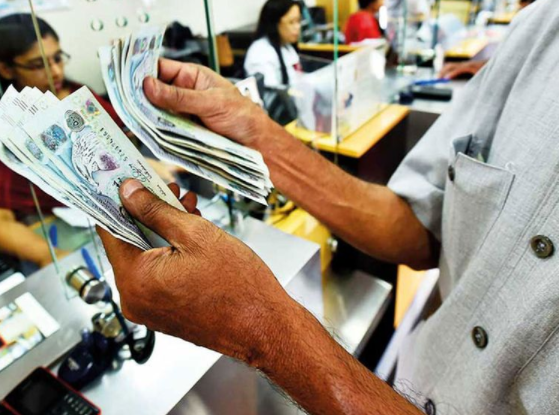Dubai: The global money transfer business is a booming one, with $10 (Dh3.67) trillion sent by people and businesses across borders every year. The UAE is one of the biggest players in this market. In the first half of 2019, remittances made by expats in the UAE amounted to Dh80.96 billion, according to figures released by the UAE’s Central Bank.
If you are new to the UAE and not sure of how to send money back home or to anywhere in the world for that matter, here is a breakdown of all you need to know.
How can I send money home?
There are two most popular options in the UAE:
- Through a money exchange
- Through a bank transfer
Of the Dh80.96 billion mentioned above, Dh33.046 billion was transferred through money exchange companies, while the rest was transferred through banks operating in the country.
For a large expat population, sending money to one’s home country is a regular ritual, so do your research on which mode of transfer makes most financial sense. Regardless of which mode of transfer you choose, there are two main factors that affect the cost of each transfer:
- Service charge or transaction fee
- Exchange rate mark up
Money exchange
Why are money exchanges so popular? They provide competitive service or transaction charges and decent exchange rates. Here is a list of some of the popular money exchanges in the UAE, in no particular order:
Al Ansari Exchange
With over 190 branches in the UAE, this exchange has a wide network of outlets. They also allow customers the option of sending money using their app. Branches can be located here and you can call them for queries on 600 54 6000.
Al Rostamani Exchange
Part of the Al Rostamani Group, which is one of the biggest business groups in the UAE, Al Rostamani Exchange is also quite a popular exchange, with branches across the UAE. Branches can be located here and you can call them for queries on 800 4250
UAE: How to apply for your baby’s birth certificate, passport and visa
UAE Exchange
UAE Exchange has over 150 branches across the UAE and also offers customers with money transfer facilities through its mobile app. Branches can be located here and you can call them for queries on 600 555 550
GCC Exchange
GCC Exchange regularly features on top of the exchange comparison rankings by the World Bank https://remittanceprices.worldbank.org/en with its low service charges. The exchange also offers online transfer facilities. Branches can be located here and you can call them for queries on 600522049.
Al Fardan Exchange
This exchange also offers competitive service charges, with over 65 branches across the UAE. The exchange also offers online transfer facilities. Branches can be located here and you can call individual branches for queries.
While you would probably need to visit each exchange’s website or store when you plan to transfer the money, since exchange rates can change every minute, an easy way to compare remittance prices is by using the World Bank’s comparison provider
Also, not every service at a money exchange is created equal. You have several options of how you wish to send money and how quickly. Needless to say, flash remit options cost more and so do cash receipt (compared to bank transfers). You can also send demand drafts (DD), which are basically a bill, similar to a cheque, issued by a bank with the name of the receiver clearly mentioned. Unlike a cheque, though, you need to first make the payment and then the DD is issued. It is a secure method of sending large sums of money in particular.
Do your research
From the UAE, the highest amount of remittances are made to India, Philippines and Pakistan. There are certain benefits that are also offered to customers, whether from exchanges or from respective governments to encourage remittances. For example, when sending money to Pakistan above a certain limit, there is no remittance fee charged. On November 17, this was for remittances above Dh740 (PKR31,329). Similarly, to encourage people to remit money to popular destinations like India and the Philippines, some exchanges offer lucky draws for frequent remittances, with cash prizes, electronic items, cars and holidays on offer.
India is the biggest receiver of expat earnings from the UAE, comprising a whopping 37.2 per cent of total remittances during Q2. Indians are followed by Pakistani beneficiaries, comprising 10.5 per cent, then Filipinos, 7.2 per cent, in the third place, with Egyptians making up 6.3 per cent.
Then come other expats; UK nationals: 3.8 per cent, Bangladeshis: 3.7 per cent, US nationals: 3.3 per cent, Jordanians: 2.6 per cent, the Swiss: 2.2 per cent and finally Chinese: 1.5 per cent.
Bank transfers
Many banks in the UAE and across the world offer attractive rates and no service charges for remittances. You can make transfers either from a bank’s branch or, more conveniently, online or through their app.
While all banks have money transfer options, not every bank offers competitive exchange rates. In fact, rates are marked up significantly, undercutting the other benefits that are offered – convenience and speed. You will need to do a lot more research to find out if your local UAE bank or even the bank in your home country has convenient ways of transferring money that make sense financially.
Credit and debit cards
Another service that customers can avail of is the use of credit cards through online remittance services. For certain services, such as Western Union and MoneyGram, using a debit or credit card can speed up the time taken to send the money. Some services even let you send money to a recipient’s credit card. UAE-based non-resident Indians can use a locally issued credit card and transfer money to any bank account in India through the online cross-border remittance service, Remit2India.
However, this could cost more, and you could face extra charges, depending on whether the transaction is processed as a purchase or cash advance.
There are also many other options available to customers, including prepaid cards, mobile or online transfers. But the complexity of use and inhibitive charges of the transfer make these options less popular among the expat community in the UAE.



